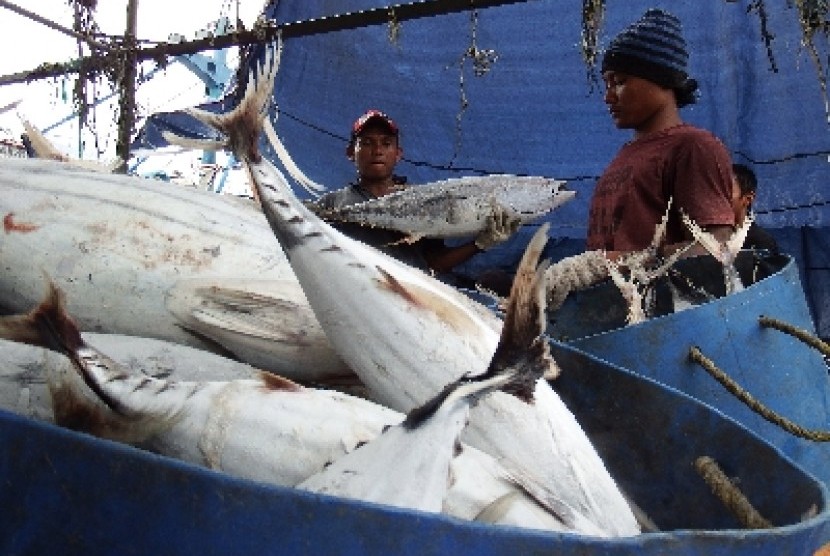REPUBLIKA.CO.ID, JAKARTA -- The Indonesian Chamber of Commerce and Industry (Kadin) has asked the government to stop levying import duties on the fisheries sector to boost the country's fisheries industries, in line with President Joko Widodo's vision.
"We hope the government will free the fisheries sector from import duties," Kadin Chairman for Maritime and Fisheries Yugi Prayanto said in a press statement here on Thursday (1/1).
Prayanto added that the government needed to alleviate the burden of businesses in the fisheries sector so that fish processing industries at home can make progress and contribute more taxes through exports.
He further noted that the lifting of the import duties could be compensated by increasing fisheries export taxes.
"For example, if the tariffs for imports and exports are 2.5 percent, then the import tax could be lifted and the export tax could be raised to 5 percent," he explained.
On the occasion, Kadin also urged the government to not ban all maritime transshipments of fisheries products.
"Kadin hopes that the proposal will take the reality in the field into consideration before the ban is implemented. So, hopefully, not all transshipments will be banned," Kadin Chairman for Marine Affairs and Fisheries, Yugi Prayanto, remarked in a written statement here on Thursday.
He added that not all ships carrying out sea transshipments were rogue ships. "Not all of them are rogue," he affirmed.
The Kadin chairman pointed out that if the ban was imposed on fishermen from all categories, their tuna catch could rot.
Prayanto explained that the small, or even the relatively larger, ships owned by fishermen did not have the same technology, such as cold storage units, as large ships.
"They only use ice cubes to preserve their catch. It will not be feasible for them to sail back to land and then return to sea again," he observed.
Therefore, Kadin hopes that the ban on maritime transshipment of fisheries products does not take effect. It should, instead, be adjusted to be practical so it caters to the reality in the field.
It was earlier believed that sea transshipments of fisheries products involved the practice of illegal fishing in various countries, including Indonesia.
"The Food and Agriculture Organization of the United Nations also highlights that transshipment is an indicator of Illegal, Unreported and Unregulated (IUU) fishing," activist and secretary general of the People's Coalition for Fishery Justice (Kiara), Abdul Hakim, noted.
After all, he added, some 30 percent of fish from Indonesia sold in the world market had indications of being products of IUU fishing.


